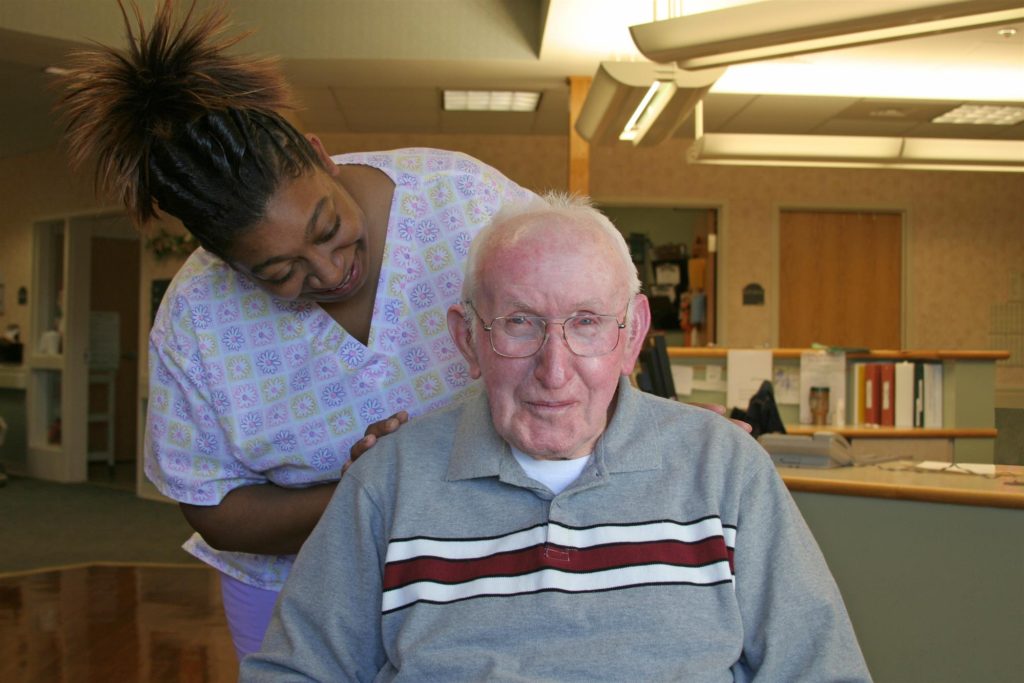Dementia is a terrible and destructive disease, and it can be very difficult to see a loved one suffer from it. Often, it replaces the person you knew with a complete stranger who is struggling to hold onto who they were.
As a professional caregiver, you play an important role in helping both patients with dementia and their loved ones cope with this frustrating disease. At ABC Training, we offer medical training programs in NYC to help you gain valuable skills for coping with dementia as a caregiver.
Today, we’ll talk a little bit about how you can best assist patients with dementia and their loved ones, even when behavioral issues or challenges present themselves.
What Is Dementia?
Dementia refers to a series of neurological conditions that result in a continuous decline in mental and social skills over time, typically in the elderly. Both Lewy Body Dementia and Alzheimer’s disease are forms of dementia.
Patients with dementia struggle to cope with self-care, and many lose short or long-term memory in increasing amounts over time. Dementia hinders the ability to remember facts, words, and recent events, and may impact a patient’s ability to communicate effectively, think clearly, and grasp reality.
The afflicted person sometimes experiences mood swings and drastic changes in personality, but this isn’t always true for every individual. Patients may have brief moments of clarity and composure, but they are often short-lived and quickly forgotten, especially in the advanced disease. Disruption in mental functions and socialization abilities eventually make it impossible for the patient to stay safe and well.
Being Rational Is Not the Best Choice
When dealing with patients who have dementia, it’s rarely worth the effort to be rational or logical with them. Their short-term memory and reduced mental functions make it nearly impossible be objective, and many will become frustrated because their reality simply doesn’t match yours. Remember: This is a result of the disease and isn’t personal.
It’s better to treat the cause of their distress and not the facts. Telling a patient he or she can’t do something may upset him or her, so work with him or her to find a suitable alternative or distraction. If they try to focus on details and nitpick, then attempt to distract them and change the subject.
Understand That Patients Lack Self-Care Function
Dementia is crippling to the point where the patient can no longer function normally. It’s up to you to take action and rearrange the environment to suit their needs and keep them safe. If the patient wants coffee or tea, then invest in a coffee or tea maker that automatically turns off after some time.
If floors or rugs are uneven, have them repaired. Use television remotes with large, easy-to-see buttons and lights that turn on with as little effort as possible. Make choices for them to provide them the direction they need. Simple things like telling them what they’re having for dinner relieves pressure and stress on the patient.
You Don’t Need to Ground Them in Reality

As harsh as it may sound, these patients will be, more or less, lost in their own world for at least a portion of the time. Your job is to keep them safe whether they’re present or not. Contrary to most ethics, it’s okay to use harmless untruths or to accept their delusions if necessary.
For example, if a patient is convinced you’re her daughter, and it isn’t harmful to allow her the delusion, it’s okay to play along. Often, they’ll come out of the fugue a short time later. Keep in mind that dementia is incurable; you’re not trying to cure the patient; you’re attempting to alleviate their suffering and achieve the highest quality of life possible. Any distraction from the disease is welcome for both parties.
Assisting patients with dementia can be incredibly taxing. It is highly recommended that all dementia caregivers seek occasional therapeutic relationships to lighten the load. That, paired with ABC Training Center’s numerous classes, can help you achieve a world-class level of care.

